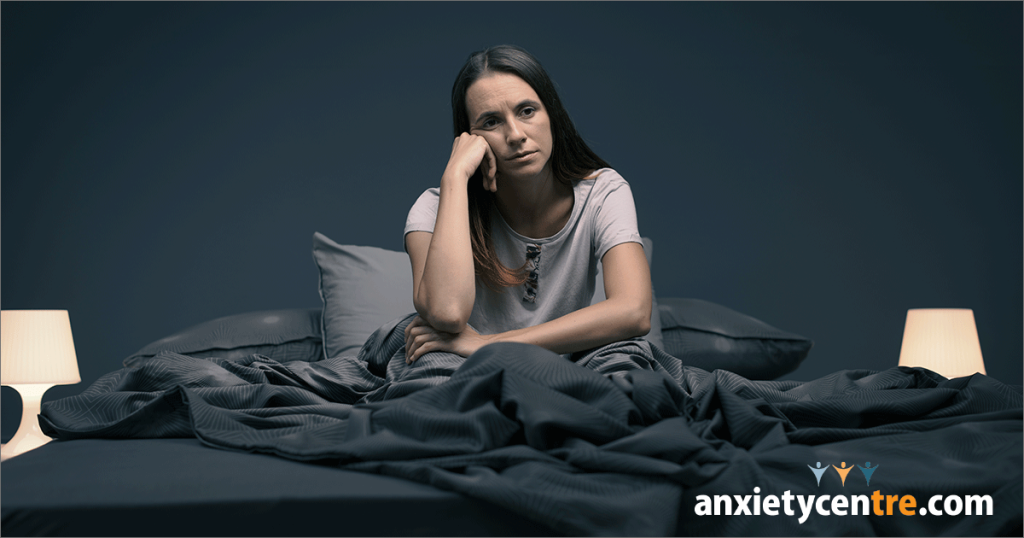
Lack of sleep is much more than feeling tired and groggy. A recent study which combined findings from over 50 years of research on sleep deprivation and mood showed that it could also have a detrimental effect on our emotional capabilities, worsen our positive emotions and increase the chances of us experiencing symptoms of anxiety.
Montana State University’s Cara Palmer, the study’s lead author, noted that measuring the effects of lack of sleep on our emotions is essential for preserving psychological health. According to Palmer, this research is the most comprehensive investigation of the relation between sleep and emotions to date, and it demonstrates that extended wakefulness, reduced sleep time, and night wakings all have a detrimental effect on emotions.
A paper was issued in the publication Psychological Bulletin, as noted in this research.
The research team, co-led by Joanne Bower from East Anglia University, conducted a comprehensive review of 154 studies from the past five decades. They looked at 5,715 participants whose sleep had been disrupted for at least one night.
In the experiments, people were either kept awake for a long time, given a smaller amount of sleep than usual, or repeatedly woken up at night. Subsequently, the study gauged how the lack of sleep affected different emotional variables, like the participants’ feelings, reactions to emotions, and indicators of depression and anxiety.
The study showed that all three types of sleep deprivation caused a decrease in positive sentiments, like joy, pleasure and satisfaction, among the participants, as well as a rise in symptoms of anxiety, including a faster heartbeat and feeling more anxiousness.
Palmer noted that even a slight reduction in sleep, such as staying up an hour or two later than usual, or missing out on a few hours of sleep, was enough to cause a rise in anxiety symptoms. Additionally, the lack of adequate sleep had a blunting effect on arousal in response to emotional stimuli.
This makes sense because when our sleep is cut short (less than six hours), the body increases circulating cortisol, the body’s most powerful stress hormone, to compensate for tiredness. Increased circulating cortisol stresses the body and stimulates the amygdala, thought to be the brain’s fear center. These changes can increase fear sensitivity and anxiety symptoms since anxiety symptoms are symptoms of stress.
Furthermore, research has consistently shown that sleep deprivation is the first to impact emotional wellbeing.
The results were less significant and not as constant regarding symptoms of depression when compared to those related to negative emotions such as sorrow, anxiety, and stress.
While the evidence for depression and negative emotions like sadness was less pronounced, the trend toward emotional distress with sleep deprivation was still evident. Notably, most study participants were young adults, with an average age of 23. Future studies are needed to expand our understanding across different age groups.
The research team also suggests that further studies should investigate the impact of several nights of poor sleep, explore why some people may be more affected by sleep loss than others, and look at the effects of sleep deprivation in various cultures, considering the majority of the existing research focuses on the United States and Europe.
Dr. Palmer highlights a concerning statistic: more than 30% of adults and up to 90% of teenagers are not getting the sleep they need. This has enormous implications for both individual and public health, especially in a largely sleep-deprived society. Thus, industries and sectors that commonly lack sleep, such as first responders, pilots, and truck drivers, should create and implement regulations that prioritize rest to prevent the adverse effects of reduced daytime ability and well-being.
Reference:
Palmer, C.A., et al. “Sleep loss and emotion: A systematic review and meta-analysis of over 50 years of experimental research.” APA PsycNet, 2023.
Common Anxiety Symptoms
Additional Resources
- For a comprehensive list of Anxiety Disorders Symptoms Signs, Types, Causes, Diagnosis, and Treatment.
- Anxiety and panic attacks symptoms can be powerful experiences. Find out what they are and how to stop them.
- How to stop an anxiety attack and panic.
- Free online anxiety tests to screen for anxiety. Two minute tests with instant results. Such as:
- Anxiety 101 is a summarized description of anxiety, anxiety disorder, and how to overcome it.
